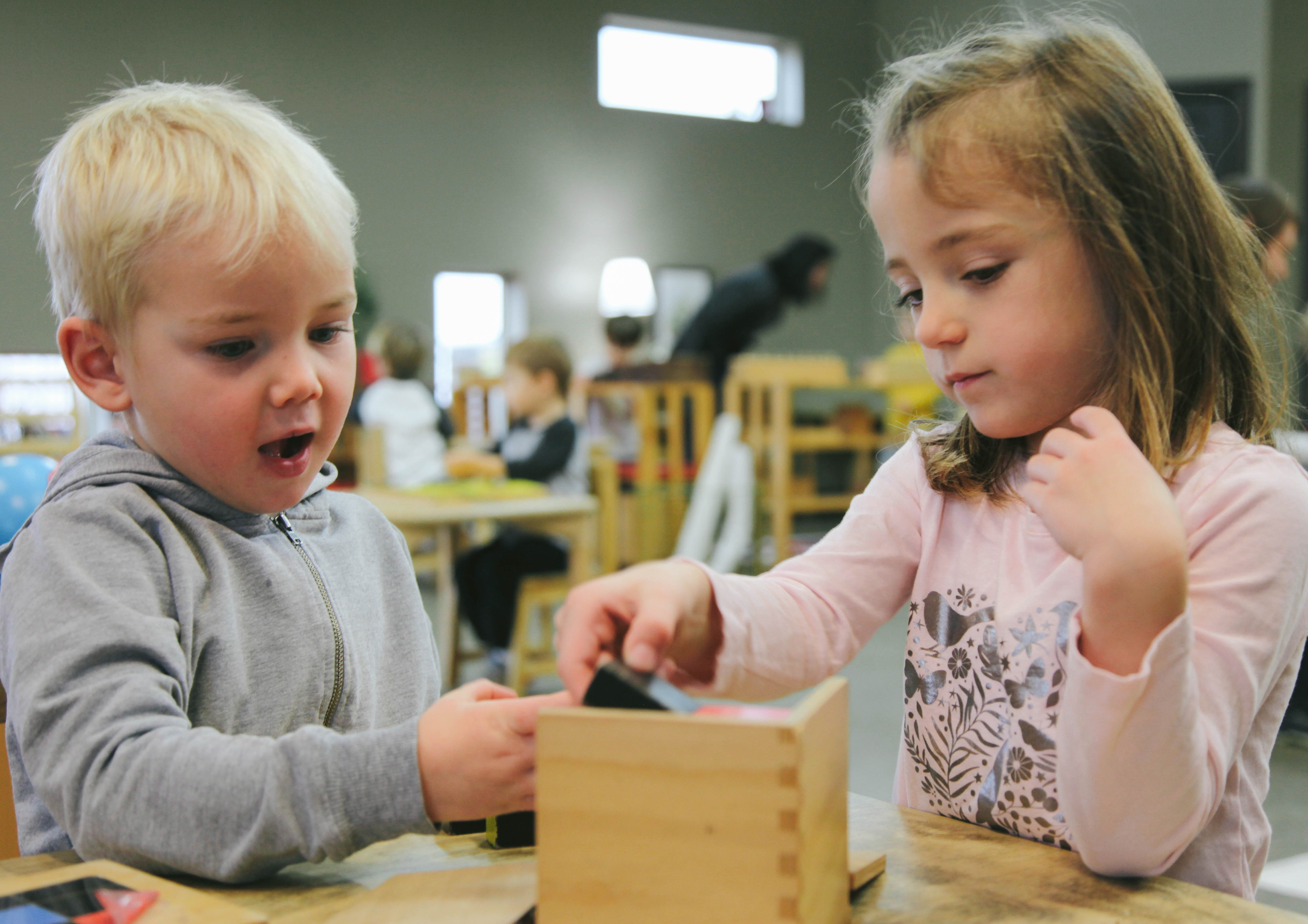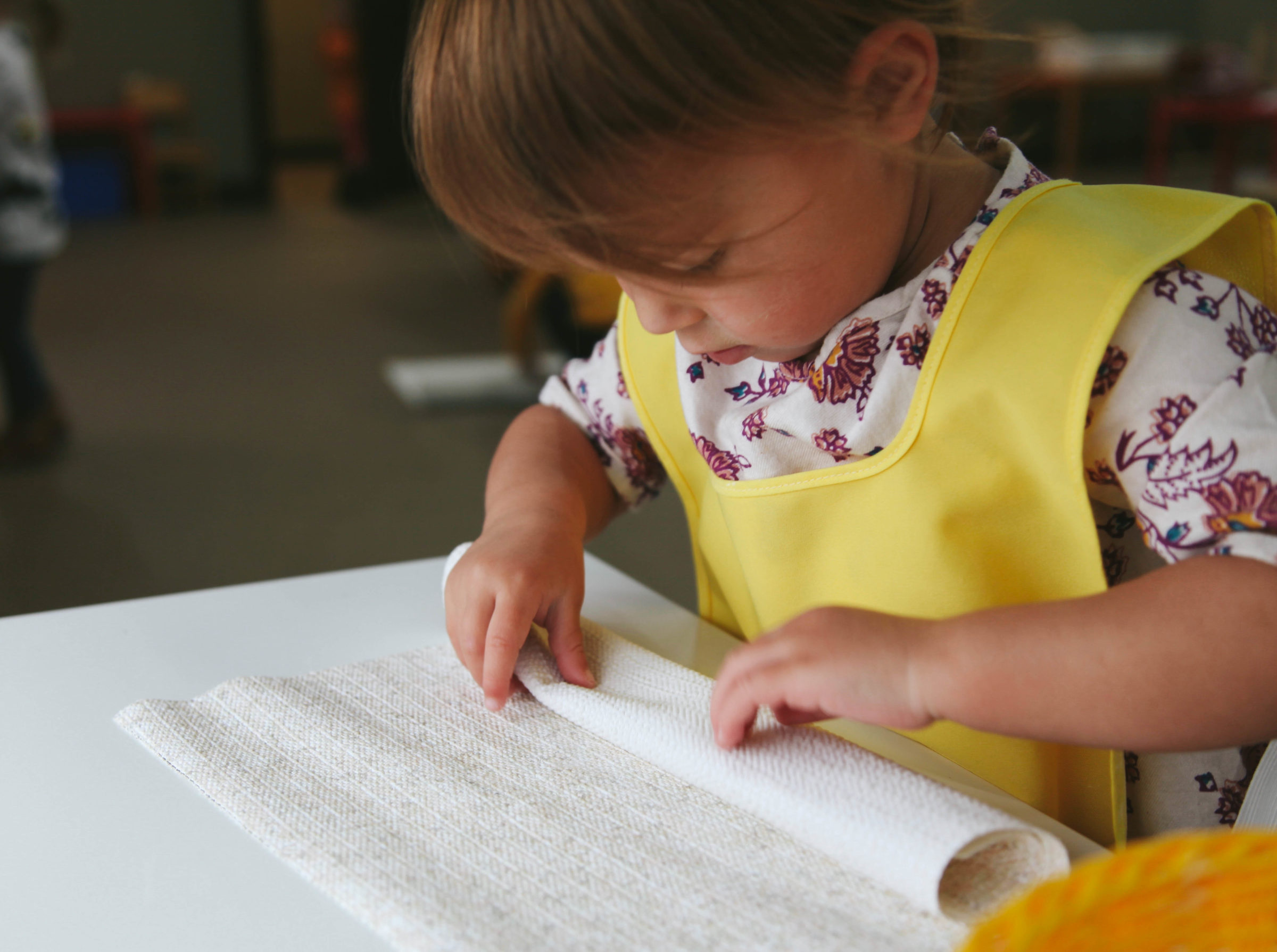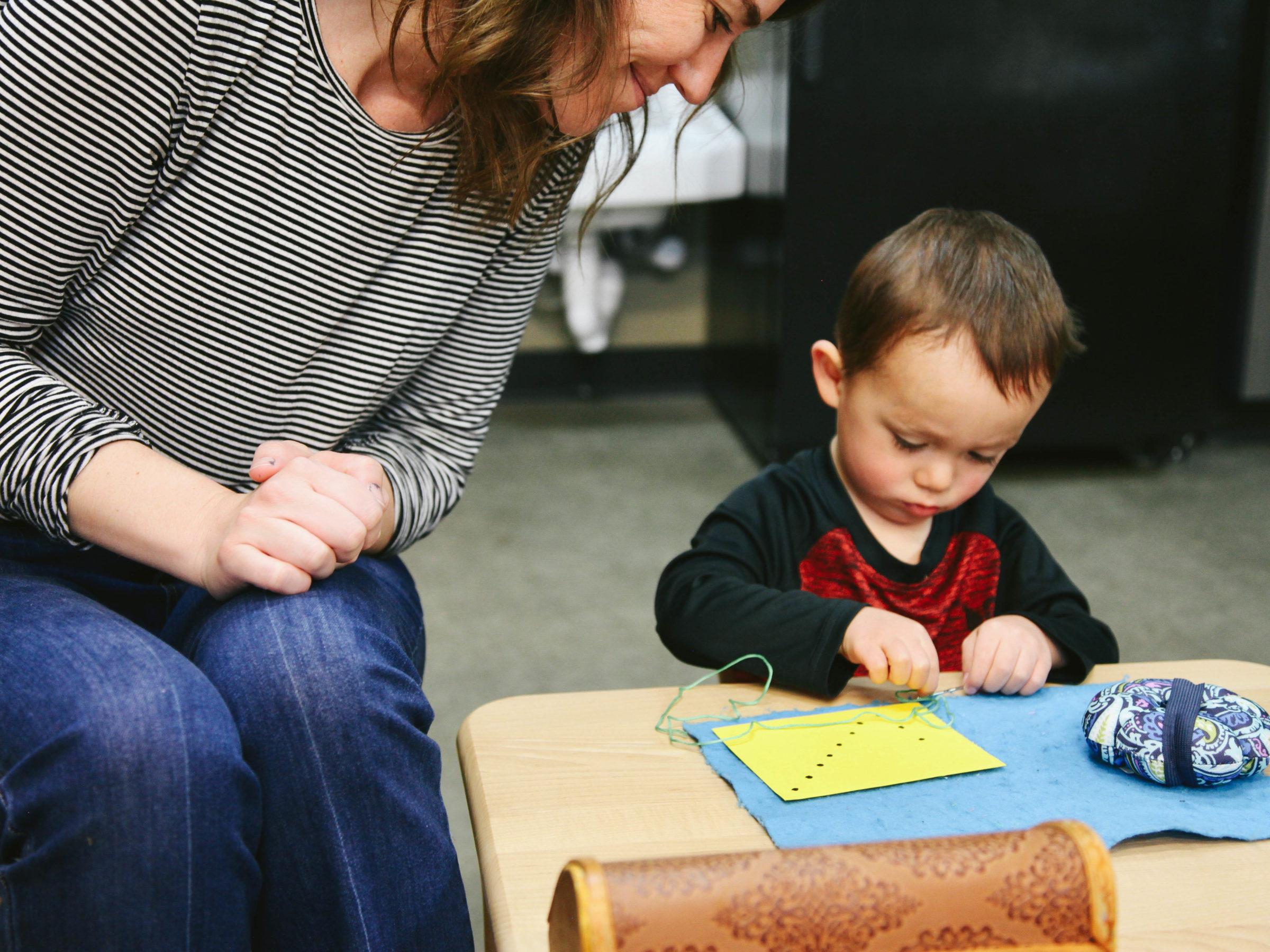In Montessori, Help is Always Nearby
Thoughts & Reflections
Sometimes we just need a bit of a nudge. A little assistance. A reminder of how something works.
In the Montessori classroom, help is always nearby. It’s one of the best gifts of a mixed-age setting. With mixed ages comes mixed abilities. I might be the expert at the bow tying frame, but I haven’t quite mastered division. While I need help when I’m the one who made the spill, I’m also right there ready to help when someone else spills.
The help that’s provided by a mixed-age group of peers is magical. It’s encouraging and genuine. It’s just enough, not too much. In fact, the children will often be the best compass of when someone really needs help. A child with a lake around them after missing the bucket who no one is running over to help might, in fact, not need help! A child with just a few minor drips who the oldest child has interrupted her work for might, in fact, be very much in need of assistance, maybe a hug, or perhaps a representation on this material. The children are so empathetic, they know exactly when, and how much, to help. Not with pride, or to point out the ways they know this work and you don’t, or for accolades, but because that is what we do. You need something I have, and giving freely takes nothing from me.

Children are so talented at helping one another because they’ve been here before. They remember what it’s like to feel frustrated or overwhelmed or unable to complete a task. They’re less likely to give more help than is necessary. As adults, we can frequently give too much help out of love, since we’re hard-wired to protect these small precious beings from discomfort and pain, or out of frustration, since it would just so much easier to “let me do it for you.” Children don’t experience this with their peers. They’re happy to help, though rarely frustrated when someone else can’t do something independently yet, and less likely to just do it for them, out of ease or love.
Children trust that sometimes they’re the one in need of help, and sometimes they’re the helper. Children pay it forward. They’re comfortable asking for and offering help. There’s no shame in needing help, there’s no points for suffering, no pridefulness in being the only one who never needs help. Help isn’t good or bad, no one is keeping track.
“As adults, we can frequently give too much help out of love, since we’re hard-wired to protect these small precious beings from discomfort and pain, or out of frustration, since it would just so much easier to “let me do it for you.” Children don’t experience this with their peers.”
As soon as you’ve mastered a skill, this becomes a tool for you to share with others. Not only that, but in the sharing you’re given the chance to practice. When we explain or demonstrate a skill for others, we think through the process differently than when we’re completing it ourselves. Have you ever tried to explain how to do something that is easy for you, and had the teaching be more difficult than the task itself? When we’re describing something that we just know how to do, we often find we can’t remember terms, or what the icon looks like that you click on in order to do the… here do you just want me to do it? That’s not very helpful, is it? Help is only help, when it is empowering, when it is sharing knowledge, when it enables someone else to also participate in this skill.
This is how children help one another. Being stuck isn’t scary or frustrating, because if you look up help is right there. Mastering a skill is two-fold joyful, first because now I can do this for myself, always a reason to celebrate, and second because now I can do this for you!
Having the skill is just as important as having the discernment when and when not to help, when to offer encouragement and when to stay silent, having the courage to know you have something to offer and being willing to share. We all have something to offer, and practice at this young, impressionable age means we know this from the start.
Written by:
Charlotte Snyder



